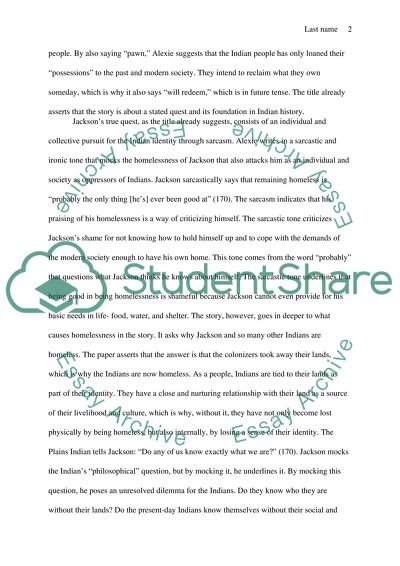Cite this document
(“Alexie Sherman What You Pawn I Will Redeem Essay”, n.d.)
Retrieved from https://studentshare.org/literature/1498062-alexie-sherman-what-you-pawn-i-will-redeem
Retrieved from https://studentshare.org/literature/1498062-alexie-sherman-what-you-pawn-i-will-redeem
(Alexie Sherman What You Pawn I Will Redeem Essay)
https://studentshare.org/literature/1498062-alexie-sherman-what-you-pawn-i-will-redeem.
https://studentshare.org/literature/1498062-alexie-sherman-what-you-pawn-i-will-redeem.
“Alexie Sherman What You Pawn I Will Redeem Essay”, n.d. https://studentshare.org/literature/1498062-alexie-sherman-what-you-pawn-i-will-redeem.


